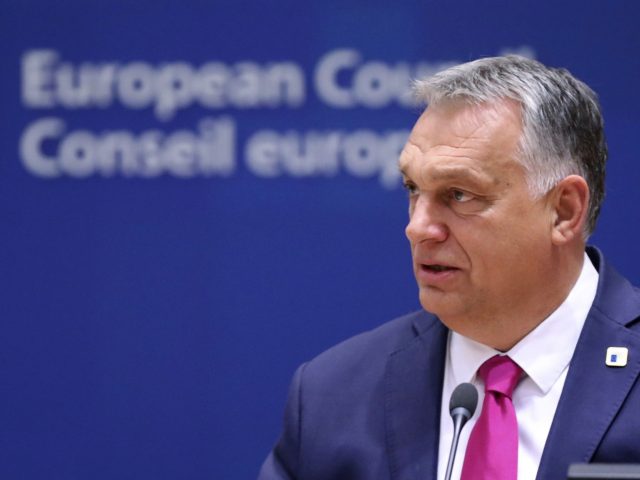Hungarian Prime Minister Viktor Orbán has threatened to veto the European Union’s budget as well as the massive Chinese coronavirus relief package, in response to the bloc’s attempts to tie funds to what they term the “rule-of-law”.
The conservative leader wrote to the President of the European Council Charles Michel and European Commission President Ursula von der Leyen to express his willingness to veto the funding over concerns that nations such as Hungary and Poland would be blocked from receiving funds over disagreements on domestic policy, such as laws on migration.
“On the basis of the reports available about the content of this agreement, I understand that it does not meet the requirement which Hungary clearly expressed several times in the course of negotiating the deal, therefore I shall not be able to support it,” Orbán wrote in a letter seen by POLITICO.
“In accordance with the agreed practice according to which nothing is agreed until everything is agreed, I have to inform you that the situation leaves no other option for Hungary but to not agree to the other elements of the package on the next MFF [Multi-Annual Financial Framework, the EU’s seven-year budget] and Next Generation EU [coronavirus recovery fund], including those requiring unanimity,” Orbán added.
While Hungary does not have the power within the EU framework to block the “rule-of-law” stipulation from becoming law, it does have the ability to veto the budget and the coronavirus relief package.
Joe Biden Blasts Conservative Govts of NATO Allies Poland and Hungary as 'Totalitarian Regimes' https://t.co/WrJs7nQ5yT
— Breitbart London (@BreitbartLondon) October 18, 2020
On Thursday, the Council of the EU and the European Parliament came to a preliminary agreement that would allow Brussels to cut funding to member states deemed to be out of step with the bloc’s vision of the “rule-of-law”.
In a statement, the European Council said the agreement “allows to protect the EU budget where it is established that breaches of the principles of the rule of law in a member state affect or seriously risk affecting the sound financial management of the EU budget or the protection of the financial interests of the EU in a sufficiently direct way”.
Belgian Eurocrat Guy Verhofstadt wrote on social media: “Agreement reached on a proper rule of law mechanism! EU funds are tied to EU values and sound financial management.”
“No double standards, no excuses, no (money) to would-be authoritarians,” he added, in an apparent reference to Mr Orbán and Polish President Andrzej Duda, leaders he has frequently bumped heads with.
BREAKING: Agreement reached on a proper rule of law mechanism !
EU funds are tied to EU values and sound financial management. 🇺
No double standards, no excuses, no 💶 to would-be authoritarians.
— Guy Verhofstadt (@guyverhofstadt) November 5, 2020
Poland and Hungary have both argued that since they did not support the decision to open the floodgates of mass migration in 2015 by German Chancellor Angela Merkel, then they should not be required to take in migrants under the EU’s redistribution schemes.
In September, Mr Orbán said that liberals in Europe believe that it is “best to cede our national governments’ powers to international organisations — and as many of those powers as possible”.
“In this they see universal ideals, European values and universal human rights being given further encouragement and recognition,” he explained.
Orbán went on to argue, however, that international organisations are “inevitably prone to a despotism which they tend to call ‘the rule of law’ but which is simply ‘the rule of blackmail’”.
“They are vulnerable to infiltration by Soros-style networks, and if they are forced to choose between the citizens of individual national communities and the big guns of global capital, in the end they will always opt for the latter,” Orban concluded.
EU Reveals ‘Mandatory Solidarity Mechanism’ to Spread Migrants Across All States https://t.co/wy8BUZvbkA
— Breitbart London (@BreitbartLondon) September 24, 2020
Follow Kurt Zindulka on Twitter here: @KurtZindulka

COMMENTS
Please let us know if you're having issues with commenting.